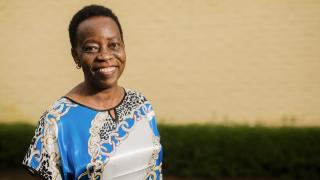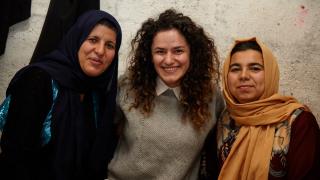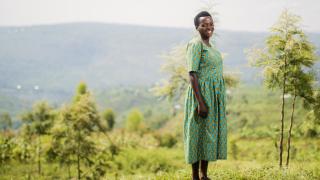Distance Won’t Stop Our Support: A COVID-19 Update
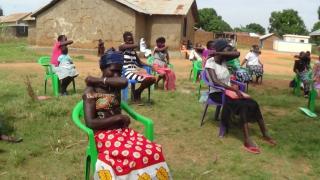
South Sudan
Together with participants from our programme, staff co-host a local radio programme that broadcasts discussions on issues affecting women, such as gender-based violence.
As coronavirus approached their country, South Sudanese participants and staff used their radio platform to share health advice and teach people about the COVID-19 outbreak. Our staff has maintained communication with women participants who have mobile phones to reinforce awareness and to relay up-to-date information.
Rwanda
Classroom leaders, as well as the leaders of networks of past Women for Women International programme graduates, are staying in touch with staff to provide updates about women on the ground, while passing on crucial news and resources about the outbreak.
Monthly stipends, which are proving crucial to participants, were sent to women remotely through banks. But with the shutdown affecting banks and circulation of cash in the country, and to encourage social distancing, our Rwanda team has quickly adapted and found alternative ways to send women these vital funds. They’ve encouraged women to get personal SIM cards which they can use with a borrowed mobile phone, to receive funds through mobile money transfers. Having a SIM card also means women can stay in touch with each other, and receive information and updates from our trainers. You can help us provide SIM cards to connect women in Rwanda by making a donation today.
Our staff are also working closely with other organisations providing services that women may need. As stress builds in communities, staff can provide referrals to services that help those affected by domestic violence.
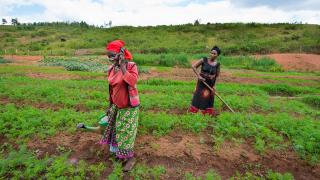
Democratic Republic of Congo (DRC)
Many women in our DRC programme learn to make soap as part of their vocational training, so our team is supporting their production and looking at how we can distribute their soap to other participants. Our team is also exploring whether women who learned tailoring can help to sew protective face masks, and what resources they would need to contribute to that effort.
Because mobile phone coverage isn’t always reliable, our teams have to find other solutions to stay in contact with women in our programme. Women who do have phones become part of communication trees to share information on how their communities are doing. Many of these trees are organised through village savings and loan associations (VSLAs), groups of women which are formed as part of our programme.
These communication channels are allowing our team to continue providing information on referrals to other important health services and support for gender-based violence. Our VSLAs are also looking at how they can support one another besides just communications. Some options they are considering are whether they can exchange or sell food to one another at reduced prices, to facilitate their local economy while also addressing the rising cost of food.
Iraq
By maintaining these connections, we can break the isolation of women being at home. They feel happy to be part of the Women for Women International family and are eager to reconnect again in person when the crisis is over.
"I am very thankful for what we learned from you about how to manage our spending and saving money. It has come in handy in these difficult days. We spend the money that we have saved on essential things"
Bosnia & Herzegovina
Afghanistan
Nigeria
Our colleagues in Nigeria are able to maintain contact via mobile phone with a few women leaders in each of the classrooms. In the communities where we work, science-based information about disease often clashes with superstitions. As a trusted source of knowledge, our trainers play a critical role.in sharing accurate information to reduce the spread of disease.
Kosovo
Read more
As the Coronavirus pandemic spreads across the world, we are hearing from our global colleagues about how the crisis is affecting them and the women they serve.
#AloneTogether with women in Iraq
subtitle:
Although Iraq is in lockdown our team continues to stay in touch with the women we serve. Shan, our Economic Empowerment Manager has been making calls and using social media to send women important news about health, government resources, and especially to make sure women know they aren’t alone.
Hope Beyond the Headlines
subtitle: BEYOND THE HEADLINES OF THE CORONAVIRUS PANDEMIC
To instil a sense of hope during the Coronavirus pandemic, we are collating this hub of inspiring stories from members of our global sisterhood.

